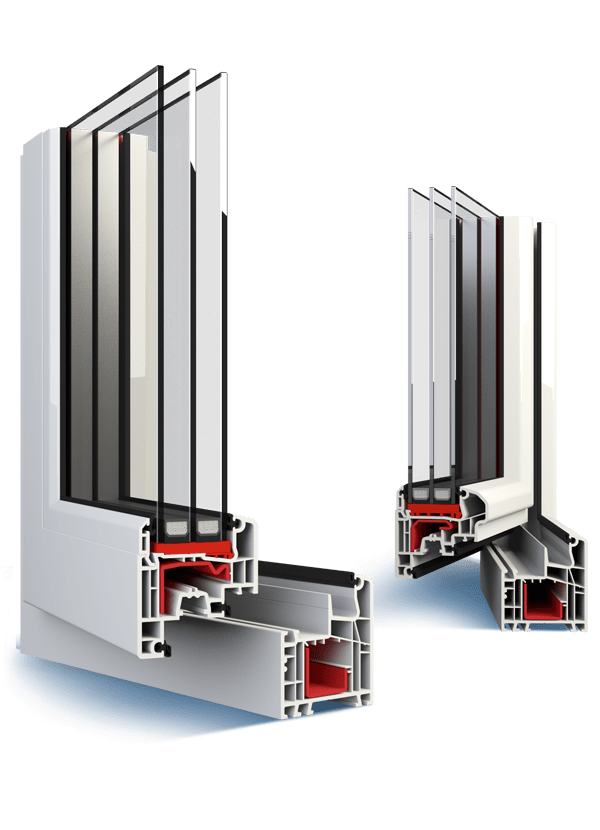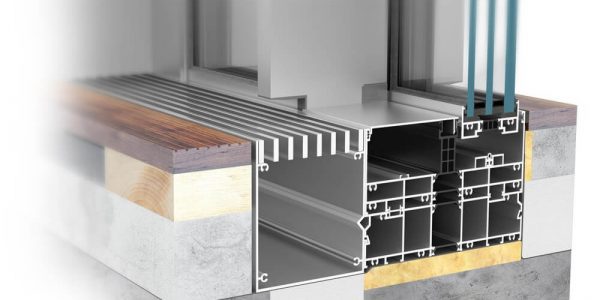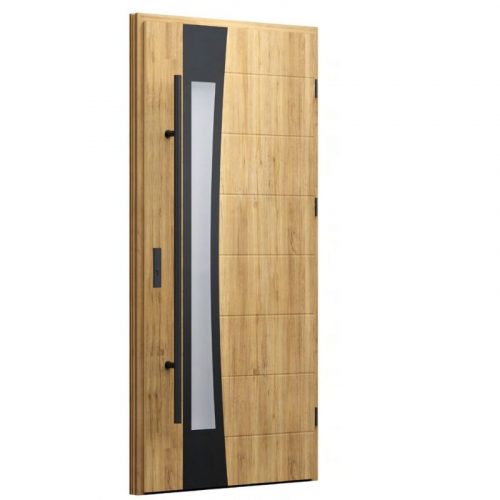Nowadays, almost all people are exposed to different types of unwanted noise – heavy traffic on the street just outside the house, jet engine aircraft flying in the sky or trains running nearby are only the most common examples of such noises. Thankfully, there are numerous solutions available that we can use to effectively reduce the level of outside noise. Some of these solutions provide way more benefits than only the soundproofing. Replacing your old doors and windows with the new ones belongs to that category – apart from reducing noise pollution, they also yield other advantages.
Why is noise reduction so important?
Noise pollution has a strong impact on our health and well-being, increasing the stress level, negatively affecting the human’s immune system, reducing the quality of sleep and affecting our memory. It is worth noting that the greater the increase in noise level (which is measured in decibels, dB), the stronger effect it has on one’s health and well-being. Why? The answer is simple: the sound intensity isn’t measured in a linear scale, where every increment is of equal value, but in a logarithmic scale. This means that every increase by 10 dB increases the intensity of sound by tenfold. In simpler terms, while a 20 dB sound (eg. whispering) is only ten times louder than a 10 dB sound (eg. breathing), a 30 dB loud sound (eg. quiet conversation) is one hundred times more intense. That’s why it is really advantageous to maintain as low a level of noise inside residential buildings as possible, because this can help maintain our health (both mental and physical) in a good shape in the long run.
uPVC Window IDEAL 5000
How do I block outside noise with noise-reducing windows?
Are you wondering how you can soundproof a room from outside noise without investing too much money in professional soundproofing materials or tiles? Well, the first thing you can do is to replace your old windows with the new ones. As for the reasons for doing that, there are several worth your serious consideration. Firstly, you can choose windows with high Rw index (more information on that you will find below) and secondly, you can choose windows with double or triple glazing. Thirdly, new windows can also be easily paired with some other solutions that will enhance the effectiveness of noise reduction gained from replacing your old windows.
What is Rw index?
To put things as simple as possible, the Rw index stands for the Weighted Sound Reduction Index, ie. the level of sound insulation provided by any given window. The higher the Rw index of a window is, the better that window protects against noise pollution. So if you plan to replace the windows in your house in the nearest future, try to look for ones with a high Rw index.
Advanced sound-absorbing glass for noise reduction
When it comes to noise reduction for windows, not all glass is created equal. For homeowners looking to achieve maximum soundproofing, investing in sound-absorbing panes can make a significant difference. These panes are specifically designed to reduce the transmission of sound through windows, making them an ideal solution for houses located in noisy areas, such as near highways, airports, or bustling city centres.
The technology behind soundproof windows involves laminating the glass with specialised interlayers that block sound waves. By using thicker glass or additional layers, such as those found in acoustic windows, homeowners can achieve a greater level of noise insulation compared to standard double-glazing units. Acoustic double glazing can reduce noise levels by up to 50%, depending on the surrounding environment and the thickness of the glass.
When combined with triple-glazing soundproof windows, the noise reduction capabilities are even higher. With triple glazed soundproof windows, the additional pane and increased cavity space between the layers serve to further block out unwanted noise, providing peace and quiet indoors.
How can you soundproof a room from outside noise with glazing?
The first barrier capable of significantly reducing (or, in some cases, even completely stopping) the outside sound from entering your house, is the wall and window glazing. When it comes to the amount of sound dampened and dissipated by the glazing, you have two choices in this regard: double- or triple-glazing units.
- Double-glazing unit – due to the unique structure of a double-glazed window, it provides the room where it is installed with a significant reduction of the outside noise (from a dozen to several dozen dB), depending on the conditions.
- Triple-glazing unit– if you already have double-glazed windows, you can try to replace them with the triple-glazing unit. It will even further increase the noise reducing effectiveness of the window, not to mention better heat insulation and thus, reduced energy bills.
Trickle vents in soundproofing
While installing noise-reducing windows is essential for blocking out external sound, many homeowners wonder about the role of ventilation in maintaining a quiet home. Specifically, do trickle vents let in noise? In theory, trickle vents allow air to flow in and out of the home, providing ventilation without requiring windows to be opened. However, poorly designed vents can indeed allow noise to seep through.
Fortunately, advancements in acoustic trickle vents have made it possible to maintain a quiet living space while still allowing for ventilation. These vents are designed with soundproofing in mind and incorporate materials that block sound waves from entering the home while still allowing for airflow. When used with soundproof double glazing, noise reduction trickle vents can help maintain a balanced indoor environment without sacrificing peace and quiet. For anyone concerned about noise, triple-glazed windows combined with soundproof trickle vents provide the ultimate solution.
How do you soundproof a room from traffic noise with doors?
The outside noise is not related only to the windows – front doors also play a significant role in protecting the inside of your house from the unwanted sounds coming from the outside. One of the main reasons as to why the front doors can be more or less soundproof, is their inside structure. Many types of low-cost entry doors have a hollow core, made from materials that leave empty air spaces (eg. honeycombed cardboard), thus allowing the outside sound to travel freely and get into your house. An effective solution to this problem are solid core front doors, which provide significantly better sound insulation than the hollow-core ones.
While replacing your old front doors with the solid core ones, you should also thoroughly check the walls around the doors and look for any cracks and holes. Sealing them will bring more benefits than only more effective soundproofing: you will also reduce the intensity of drafts and reduce heat loss during the winter or in cold weather.
Window frames for noise reduction
When discussing soundproof windows, it’s important to consider not only the glass pane, but also the window frame itself. uPVC windows, known for their excellent insulation properties, are some of the best options for reducing noise. These frames are made from a durable, non-conductive material that helps to minimise sound transfer, creating a quieter indoor environment. Unlike wooden frames that can expand and contract with temperature changes, uPVC frames maintain a tight seal around the glass, reducing the chances of air and noise infiltration.
Benefits of triple-glazed windows for noise reduction
If your home is located in an especially noisy area, e.g. near a busy street or a train line, triple-glazed windows offer the best solution for reducing outside sound. These windows consist of three panes of glass, separated by gas-filled cavities that increase thermal insulation while also enhancing soundproofing. Compared to double-glazing, triple-glazed windows soundproof your home more effectively by reducing the amount of sound that can pass through the glass.
Triple glazing noise reduction can be significant, cutting down noise levels by up to 35 dB. This is especially useful for homes in high-traffic areas, where exterior noise can significantly affect the quality of life. While double-glazed windows provide some noise reduction, triple glazing is the preferred choice for homeowners who need the highest level of sound insulation.
Additionally, triple glazed windows noise reduction helps to keep your home quieter and boosts energy efficiency, helping you save on heating costs.
Steel Composite Doors 37
How do I reduce outside noise at night?
In the highly unlikely case, where even replacing your doors and windows with the newest models still leaves you with too much unwanted outside noise in your house at night, there is one more cost-efficient solution that you can try out: curtains. On the market, there are different types of curtains and drapes available – you can mount them as an additional source of sound insulation.
The best choice here would be curtains made of a thick, dense fabric (eg. velvet) or special noise-absorbing materials (these usually have a wool core with the addition of other sound-insulating materials). This solution is only effective to use at night, though – during the day you will have to reveal the curtains in order to let the sunlight inside. You have to remember, though, that curtains will not help you to stop the outside noise, if your windows are old and walls are full of cracks and holes. There’s an old saying that it is better to prevent than to cure, and it is applicable here as well – cracks and holes should be properly fixed, and old windows replaced with the new ones in the first place. Only if these will not be effective enough, you should try to make your nights more comfortable (and silent) with the curtains.
Choosing the best windows for soundproofing – Fenbro
When selecting the best soundproof windows for your home, it’s vital to consider all the factors that contribute to effective noise reduction, from the glass to the frame to the installation process. For optimal results, look for windows that offer:
- Thick or laminated glass – the thicker the glass, the more soundproof it will be. Laminated glass, often used in acoustic windows, provides an extra layer of soundproofing by blocking sound waves
- Gas-filled cavities – in double-glazed and triple-glazed windows, the space between the panes is often filled with gas (like argon or krypton), which helps to block sound
- Properly sealed frames – look for uPVC window frames or similar materials that create a tight seal around the glass. This prevents noise from leaking through gaps or cracks.
By choosing windows designed with soundproofing in mind, such as those offered by Fenbro, you can create a peaceful, comfortable living environment that is protected from external noise.
If you’re looking for top quality windows and doors that can help you protect your home from the outside noise, simply contact our sales team and submit your enquiry. We will be happy to prepare an individual, tailor-made offer considering all your needs and expectations and return to you with a quote within 48 hours.




